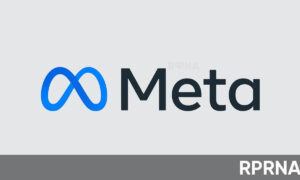Britain’s online safety legislation “risks constant monitoring and censorship of people’s private information,” Facebook parent Meta said, adding to a recent long list of complaints against the proposed law. The comprehensive cybersecurity bill is reportedly being passed in parliament and is expected to come into force next year. The government expects it will apply to more than 25,000 services.
JOIN US ON TELEGRAM
Meta said the bill still faces revisions, but the draft pushes the biggest social media and search engines to help people avoid “legitimate but harmful content” in so-called user-to-user services.
This did not distinguish between messages and public social media and could mean “scanning all private messages,” Meta said in written evidence released Wednesday, adding to a series of concerns and proposed amendments to the draft bill that has been published since March.
 “Tech companies are failing to address child abuse, and end-to-end encryption may make them invisible on their websites while hindering efforts to catch perpetrators,” a spokesperson for the Ministry of Digital, Culture, Media, and Sport said in a statement.
“Tech companies are failing to address child abuse, and end-to-end encryption may make them invisible on their websites while hindering efforts to catch perpetrators,” a spokesperson for the Ministry of Digital, Culture, Media, and Sport said in a statement.
“As a last resort, Ofcom has the power to allow private messaging applications to use technology to identify child sexual abuse information material – only in appropriate circumstances, and with strict rules,” the email said. Legal privacy protection measures are in place.”
The scope of the submission reflects the breadth and complexity of the proposed law. Lawmakers have received relevant letters from Silicon Valley giants, news publishers, church groups, broadcasters, insurance companies, The Lego Group, e-cigarette maker Juul Labs, dating app Bumble, animal rights advocates, and more .
Meta has also received criticism over censorship, misinformation, and controversy over training politicians who have since used Facebook for their propaganda. A representative for Meta declined to comment on the reports but said they supported regulations.
In the submission, Twitter said it was concerned about the issues surrounding free speech in the bill and the precedent set by the bill regarding the threat of criminal sanctions, adding that because of the risk of exploitation by “malicious actors”, the exemption for journalism should be lifted. Alphabet-owned Google said the bill appeared to encourage “automated general monitoring and excessive removal of content.”
















